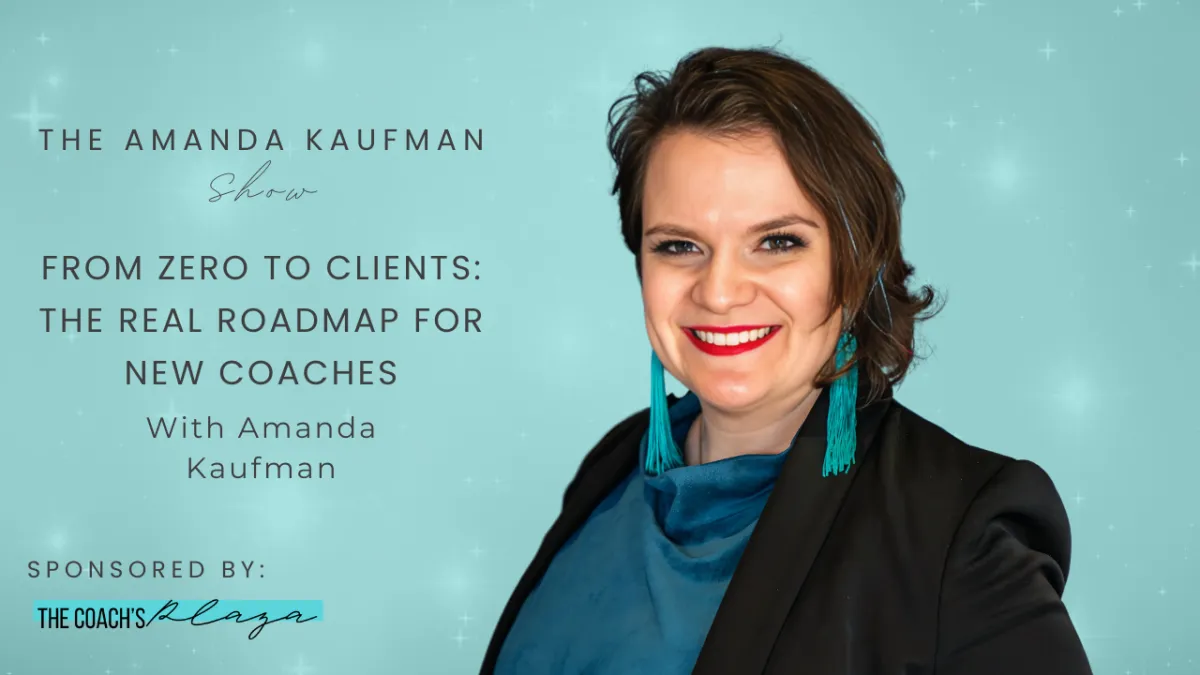
From Zero to Clients: The Real Roadmap for New Coaches
From Zero to Clients: The Real Roadmap for New Coaches
By Amanda Kaufman
Starting a coaching business is one of the most exciting and empowering decisions you can make. But let’s be real—it can also feel completely overwhelming. There’s so much noise out there about what you should do: get a certification, pick a niche, build a website, post on social… and suddenly you’re staring at a to-do list a mile long with no clear idea of where to begin.
I’ve been there.
So in this post, I want to share the exact five steps I teach new coaches to help them get out of “planning” mode and into client-getting action. This is the real roadmap I wish I had when I started—because when you focus on what matters most, everything becomes so much more manageable.
Let’s dive in.
Step 1: Define What Qualifies You to Coach
You don’t need a fancy certification to start helping people. (Though if you’ve got one, amazing!) What you do need is a clear sense of what qualifies you to serve. Maybe it’s your lived experience. Maybe it’s your career background. Maybe it’s something you’ve helped others through before.
For me, my qualifications came from a mix of professional coaching certifications and personal transformation. I’ve lived what I teach—and if you have too, you’re already more qualified than you think.
So instead of obsessing over “am I certified enough?”, ask: What transformation can I confidently help someone achieve? That’s where your coaching authority begins.
Step 2: Do the Right Kind of Research
Most coaches get stuck because they fall in love with their idea of coaching—how they think it should look, feel, or sound. But the truth is, business is about service. It’s not about building what you think people need. It’s about understanding what they’re already searching for.
This is where research comes in.
You need to go beyond your bubble. Look at who the top voices are in your space. What books are bestsellers? What podcasts are trending? What questions are popping up in forums and groups? The goal isn’t to copy—it’s to understand what your potential clients are already talking about so you can meet them where they are.
Because here’s the truth: You might be the unicorn. And that’s beautiful—but if your ideal client is also a unicorn, your business will struggle to grow. Choose a market that’s active, growing, and full of people who want the transformation you provide.
Step 3: Build a Beta Offer
Once you’ve done your research, it’s time to test the waters with a beta offer. This doesn’t have to be complicated. You can offer a low-cost or even free round of coaching in exchange for honest feedback and testimonials.
This is not about working for free forever. It’s about building confidence, clarity, and momentum—while learning what your clients actually want from you. It’s also an incredible way to develop your process, hone your messaging, and test your systems in a low-pressure environment.
Think of it as a coaching lab: you’re experimenting, observing, and gathering data that will shape your full offer.
Step 4: Ask for Feedback Like a Pro
This is where a lot of coaches freeze up. But if you want to be a professional, you’ve got to ask:
What did you value most?
What could have worked better?
What would have made this experience even more impactful?
Feedback is a gift—and the best insights will come from your beta participants. Look for patterns. If multiple people say the same thing, that’s gold. If only one person mentions it, take it with a grain of salt. Remember: you're not trying to please everyone. You’re refining for your ideal people.
And don’t forget to reflect on your own feedback too. What felt aligned? What felt clunky? What lit you up the most?
Step 5: Formalize Your Offer
Once you’ve run your beta and gathered feedback, it’s time to formalize your offer. That means structuring how you’ll enroll new clients—especially strangers—and creating a simple, scalable way to grow your business.
In the beta phase, you likely worked with friends, peers, or referrals. But real business happens when you can attract, connect with, and convert new people—consistently.
So think about:
What does your stranger-to-client journey look like?
What tools or systems do you need to support that journey?
How can you track your results, so you know what’s working and where to improve?
You don’t need to launch with funnels, ads, or a complicated website. You just need clarity, consistency, and a way to measure progress over time.
And If You’re Feeling Overwhelmed…
You’re not alone. So many new coaches get caught in a spiral of overthinking, over-researching, and over-perfecting. That’s exactly why I created my free coaching community, Clients Over Chaos.
Inside, I go live weekly with support, mindset shifts, and real strategy. You’ll also get access to my Clients With Confidence mini-course—something we used to sell for $297—completely free when you join the group.
👉 Click here to join Clients Over Chaos
If you’re ready to stop guessing and start growing, I’d love to welcome you in.

Chapters
00:00 Introduction to Building a Coaching Business
03:02 Qualifying as a Coach
05:55 Researching Your Market
08:50 Beta Testing Your Coaching Offer
12:13 Formalizing Your Coaching Process
14:01 Conclusion and Community Invitation
Full Transcript
Amanda Kaufman (00:00)
What did you value the most and what did you value the least? A professional wants to know those things because they're gonna take those things and they're gonna use them to make what they're making even better.
Well, hey, hey, welcome back to the Amanda Kaufman show. Today, I want to talk to you about the five big moves to creating your coaching business, starting from absolute scratch, because when you understand these five steps, you're going to save yourself so much hyper investment, save yourself a huge amount of time per month or per week or per year that you're working in your business.
You're going to have a lot of clarity very quickly about what's working and what doesn't. I'm gonna take you through five key steps in today's video. Let's do it. Okay, so step one of the process is you need to be qualified in some way to coach. Now, when I say qualify, it doesn't mean that you have to have, you know, a particular certification or recognition from a particular body. Coaching is very different from, say, therapy.
where you need to have a particular license because, and the reason why is that the word coaching is very broad. It could apply to somebody who's doing a lot of life coaching or executive coaching or leadership coaching or high performance coaching like I do, or it could be somebody who's coaching towards a particular goal. So for example, I've got friends who are financial coaches and, you know, help people get out of debt or how to increase their cashflow with their business.
I have friends who are fitness coaches and they help people with their movement and their nutrition and things like that. So the word coach really just means that you are walking arms with a client and you're helping somebody meaningfully to achieve a transformative goal. Okay, so that's what a coach does and that's why it may not be a licensed or certified thing, but it could be. So where do we get our qualification from? Well,
The first place that you might look is your experience. Are you experienced in that area of transformation, either living through it yourself or perhaps helping others through it and you have that experience already. Perhaps you have it from a job that you've worked or another kind of an environmental experience kind of a thing. The second way that you can get it is to certify.
So I have two coaching certifications myself. I have one from the Institute for Professional Excellence in Coaching, that's IPAC, and that's an ICF accredited school. ICF is the International Coaching Federation, but you don't need to have that kind of a credential. I also have a certified high-performance coaching. I've been a certified high-performance coach since 2017. That's through the High Performance Institute. It is not an ICF accredited certification, but you know what it does do?
is it lets me do a great job with my clients for the goals that they have selected. So, see above for my definition of what a coach is. So, the other way that you can further qualify yourself, and I would look at each of these things, know, experience, working through the experience of other certification, these are all things you can do on their own, but they're also really additive things. So, you can always add to this list as you go along.
The third big thing is to actually just do research, right? So I'm a big nerd. I love to read. I'm always reading books on personal growth and development, business, psychology, sociology, oleologies. And, you know, it's that supplemental reading that I do, honestly, for fun. Like, I read a lot of these things just, you know, for fun because I enjoy the subject. I'm really, really into it. I am a nerd. So...
You know, if you're the nerdy type on your particular area of expertise, go full nerd, keep reading the top books out of your particular area of expertise and then some, keep reading my friends. Okay, the fourth way is to actually shadow. So you can maybe get a job as a coach working for another coach or for a company where somebody has already accomplished what it is that you seek to achieve long-term. Job shadowing is a tremendous way.
to build your qualification. Okay, so that was step one to qualify. Step two is to do your research for your business. So now that you're qualified, and maybe you already are at the time of watching this video, now it's time for you to do some research. Because if there's one mistake that I see most coaches are making is they fall in love with their idea of coaching, their idea of how the world should be, their idea about what everybody else should do.
And they find out that not very many people are thinking that way. So I call this the unicorn avatar. When you think of somebody who you want to come into your business as an avatar, kind of an imaginary person, but they're such a unicorn. They're completely unique. They're mystical, magical, difficult to find. You don't want that for a client avatar for the purpose of business.
What you want is you want a lot of options. You want a nice, juicy, growing market, and a market is just a collection of people who have all decided that they want to have their needs satisfied and possibly even in a particular way. You want to find out what those markets are, and that one can kind of keep people stuck for a long time. You know, when I was starting my business, if you go far enough back on my YouTube channel, you'll probably see me talking about being a niche list coach because I was so terrified.
of pigeonholing myself into a particular niche or a particular market. It was hard. It was really hard to be a niche, a niche-less coach. I still did it. I was still successful, but I became more successful when I doubled down on serving a particular market. Okay, so when you do your research, you're wanting to look for who are the top authors, the top coaches, the top speakers in your area of expertise.
Like who's the go-to? And you might look at like the major books that have been released or the seminars or conferences that are available or even the networking groups that you see popping up in your area if you are living in a larger area. The biggest thing when it comes to research is it's important to burst your bubble, right? To move outside of your normal, your standard normal places that you hang out.
and start to really expand your understanding of the world. What is it that a lot of people are doing? What is it that a lot of people are wanting? What is it that a lot of people are talking about? Because you might be the unicorn, you might be that unique, unique, unique person with your particular tastes and flavors and ways that you look at the world, but when you're building a business, a business is about service, service to your clients, to your customers, so you've gotta understand what it is that they actually want.
The whole key in this stage is to ask a lot of questions and to get to know your market really, really well. Once you've done your research and you have a pretty good idea of what people are looking for, the next step is to beta test. And you know, as a coach, you really shouldn't have to overthink this too much. The key is that you want to offer a free or low cost option for coaching with you. So this could be private, it could be a small group that you're getting together.
But the point is, is it's very advantageous to people to participate in it now and get you on the ground floor, but it's in exchange for their feedback. That's the really key thing because one of the things that keeps coaches super stuck in starting a business really well and really authentically is they're overthinking what it is to serve as a coach and they're overthinking what people's reactions and responses are going to be. they're...
get very fearful of rejection and very worried about false expectations appearing real, right? F-E-A-R, false expectations appearing real. When you build something that is authentically of service, it's aligned to your research in that it is solving problems that people genuinely care about and you're qualified because you have gotten your certification, done your research, drawn from your experience, whatever you needed to do to qualify yourself to be able to be the coach in the first place, it's great.
It's awesome. And so really the role of the beta round is to give you the necessary feedback about what are people actually prioritizing versus what you think they're prioritizing. What are the words they actually use to describe their situation? Not the words you think that you're hearing. The whole idea is to get higher quality feedback in a low risk to both you and the participant kind of a way. And that's the role of the beta test. So I would do that. And the
Big tip here too is just because it's a beta test doesn't mean that you shouldn't do your absolute best. You wanna play full out, leave it on the field, do your actual best because then you're going to do what I think a lot of people are hesitant to do is you're gonna ask for feedback. So feedback is gonna be the difference between the amateur and the professional. So a professional wants to know what could have worked better. A professional wants to know
What did you value the most and what did you value the least? A professional wants to know those things because they're gonna take those things and they're gonna use them to make what they're making even better.
So feedback is a gift, especially when it is delivered to you by your beta participants. So in particular, you wanna note the trends and the repeated patterns between your participants. So if a lot of participants are giving the same point of feedback,
then it's probably worth considering incorporating into your overall strategy. If you're hearing one thing, and even if they're really passionate about telling you that one thing, but you hear it from just one person, just be mindful that maybe that's one person's particular preferences versus the global preferences of most people that you're gonna want to serve. Okay, the key here is when you're getting the feedback.
write it all down, and then you're gonna prioritize what you incorporate into the next step. You you're gonna have more feedback for yourself than anybody is gonna give you, and then you're gonna have all of their feedback, and it's gonna be this big, intimidating list of things that you're gonna do for your final product. But don't sweat it. You know, you're one human. Maybe you've got an assistant on hand, but your capacity, even with a large team, is limited.
So you do want to take the time to prioritize the most imperative feedback first and leave the lesser importance of feedback to the end, just so you can make sure that you're aiming for progress, not perfection. All right, final big step is you're gonna formalize. So you're going to incorporate the learnings from your beta test. And this is the step.
This step here is where you want to design your stranger to client journey, which I will talk about in a future video. But the stranger to client pathway or journey is how you're gonna meet people, talk to people, fit with people so that you can ultimately coach them.
You see with the beta test, this is generally going to be your friends and family or friends of friends that have agreed to be in the beta. So they're gonna be people that.
either know you or know of you and are your biggest champions and supporters. To have a real business though, you need to be able to appeal to a stranger and move them towards purchasing. This can take some time to build the skillset to do this. This is one of the biggest things that I help my clients with.
And the key is that you wanna make sure that you're measuring that process, that formal process of enrolling people, meeting people, enrolling people over time so that you can optimize. there's two things that I'm optimizing for. I'm optimizing for the pace. Can I speed this up? Can I automate this? Can I make this go faster? And I'm also wanting to optimize for volume. So really the game of business is not can I serve somebody with a coaching business?
That's not it. It's can I be chosen to serve somebody in a coaching business and are they gonna be delighted with the service and are they going to refer me to other people and can I do that at enough pace and volume that I can support my lifestyle goals, my business continuity goals and so on.
Where people tend to go a little off the rails, a lot off the rails, is they get overwhelmed. There's just so many ways that you can market, there's so many ways that you can sell, there's so many ways you can certify, and if you try to do it all, you're going to blow your budget really early on and risk the game. You're gonna risk being able to do this. This chaos that's in the coaching industry, we are actively fighting against, and that's why we started our clients.
over chaos community because clients are better than chaos, don't you think? Now it's a free group and you can find the link anywhere below this video or wherever you're listening to this episode. Clients Over Chaos is my free community where I go live every single week and I share a daily spark every single day to motivate you into your client getting practices.
Plus when you join the group, you get access to a free program that is so easy to go through. It's only five, 10 minute videos. But when you complete the videos, you unlock a whole course on how to conduct your conversations confidently. I've had one of my clients tell me that they turn around and made an extra $5,000 within just a few days of watching that training. And we previously sold it for $297, but it's yours free when you join the Clients Over Chaos community.
and complete that training that I talked about. All right, y'all, thank you so much for joining me for this episode. I hope you found it so helpful. So first we qualify ourselves, then we do the research on what is it that people are already buying, then we build our beta test, then we get feedback from that test to incorporate into the formalization of our program. If you found this to be helpful, let me know. If you've got more questions about how to start your business, let me know that as well.
I'm here to support you and the best way to reach me is inside that Clients Over Chaos community. But we of course look at our comments and we are listening. We want to hear what will help you move the needle next. We'll see you soon.


